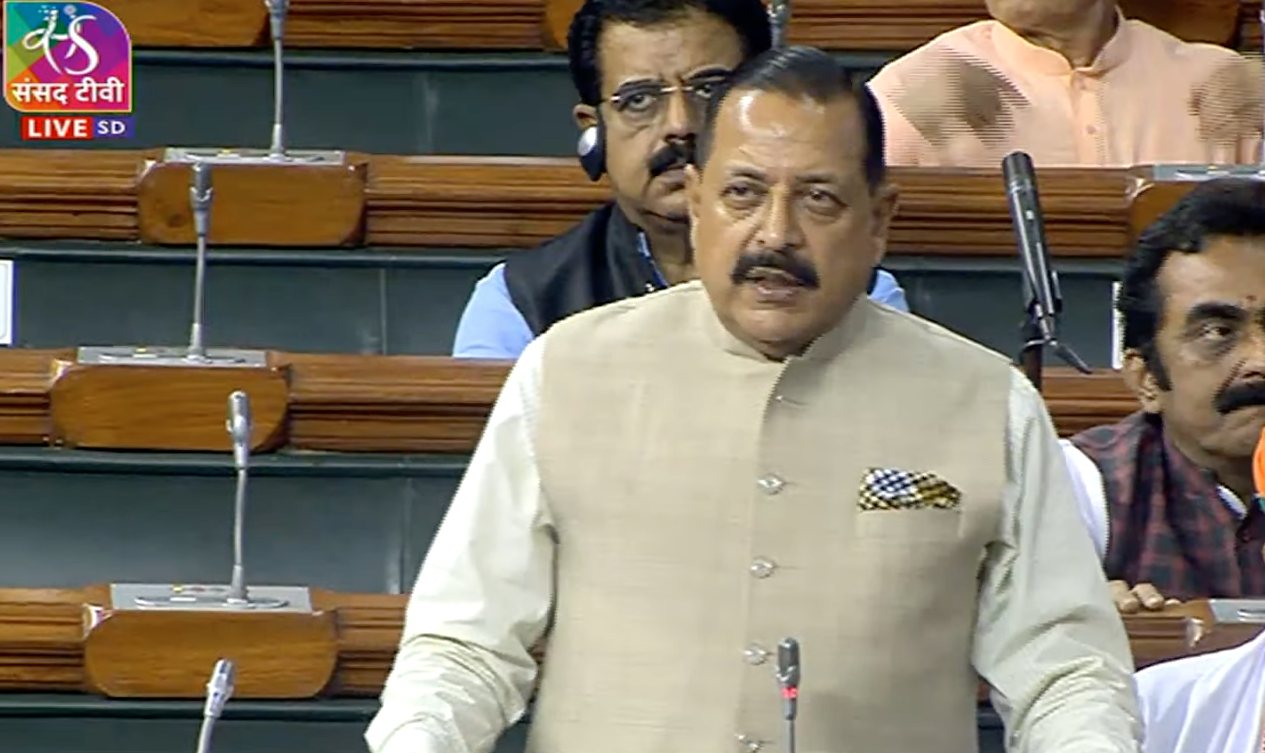NEW DELHI, July 20 : Union Minister of State (Independent Charge) Science & Technology; Minister of State (Independent Charge) Earth Sciences; MoS PMO, Personnel, Public Grievances, Pensions, Atomic Energy and Space, Dr Jitendra Singh informed the Lok Sabha today about the creation of a single-window agency to facilitate private participants in Space sector, including programmes and projects of Indian Space Research Organisation (ISRO) and Department of Space.
India is aiming at enhanced share in the global Space economy and with the intervention of Prime Minister Narendra Modi, several steps have been taken in this direction, including what is being popularly described as “unlocking” of Space after seven decades of independence.
The Minister said, 10 (Ten) in-orbit operational communication satellites have been transferred from Government of India to M/s. New Space India Ltd (NSIL), a CPSE under Department of Space.
In reply to a question, Dr Jitendra Singh said, communication satellites viz. GSAT-8, GSAT-10, GSAT-12R (CMS-01), GSAT-14, GSAT-15, GSAT-16, GSAT-17, GSAT-18, GSAT-30 and GSAT-31 have been transferred at a written down value of Rs 4697.60 crores against issue of equity to Government of India, with 01.04.2021 as the effective date of transfer.
The Board of NSIL is authorized to price the transponder capacity as per the global trends. NSIL shall carry out the activities related to offering and allocation of capacity, as per the guidelines to be adopted by its Board. The transfer of operational satellites is part of the Space Sector reforms, aimed at strengthening the role of NSIL in order to enhance the nation’s share in the global space economy.
The Minister also informed that the Government has taken several steps to increase India’s share in the global Space market, through the reforms undertaken in 2020, which seek to augment the Space sector in the country with greater participation of Non-Governmental Entities (NGEs).
The Indian National Space Promotion & Authorization Centre [IN-SPACe] has been created as a single window agency to promote, handhold and authorize the activities of NGEs in the sector, thus providing them with a level playing field.
As a part of these reforms, NSIL has been mandated to task the building of launch vehicle through Indian Industry and launch as per satellite customer requirements. With the operationalization of IN-SPACe, the progressively evolving regulatory environment, a greater private sector participation in end-to-end space activities is expected, which may result in increased share of India in the global space economy.
Pertinent to mention that in a short span of time since the Space sector was opened for PPP mode, over 60 StartUps have already registered with ISRO and the industry’s interest has also increased. At the same time, many foreign countries are utilising Indian launch pads for their satellites and also using Indian facilities for other Space related activities. This has also enhanced India’s source of revenue.
Trending Now
E-Paper


